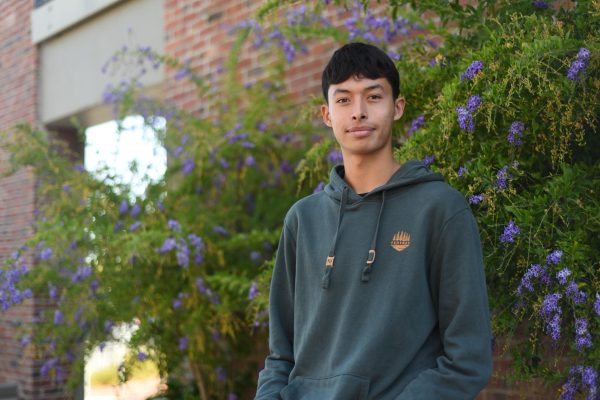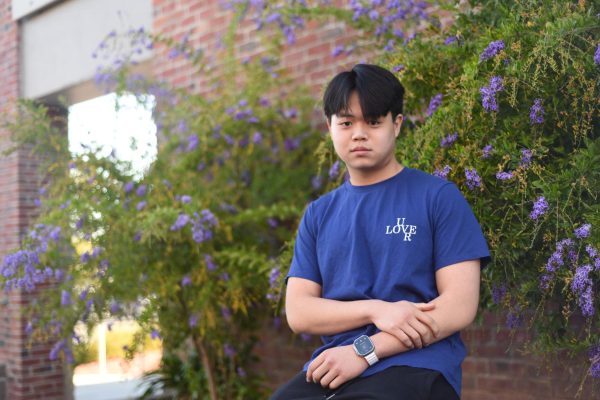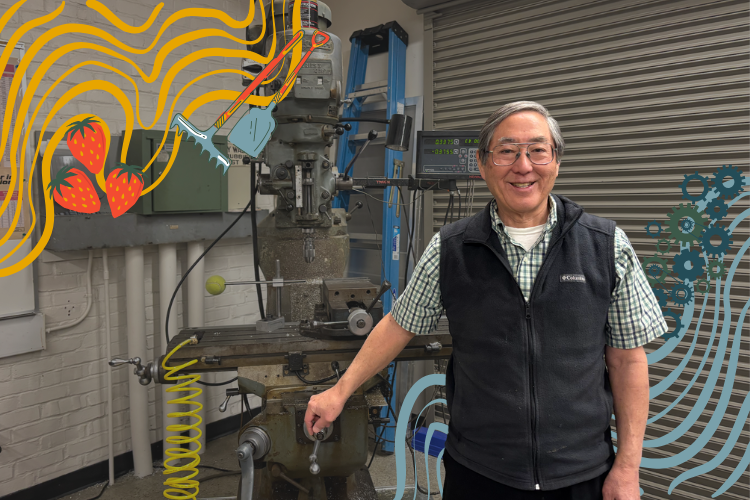EE: Hi there! My name is Ethan Eisler, and my name is Samuel Teo, and today we are joined by senior and co-concertmaster Iris Shi. Shi has played violin since fourth grade and was recently appointed co-concertmaster of the San Francisco Symphony Youth Orchestra.
EE: How did you get into playing violin?
IS: I started playing violin in fourth grade when I was nine years old. I originally didn’t decide to play violin on my own; it was because I switched schools, and my new school provided opportunities for people to learn instruments, so my parents signed me up for it. I didn’t want to do it initially, but I just really got into it and really enjoyed it.
EE: Why did you join the San Francisco Symphony Youth Orchestra?
IS: I joined this orchestra in my junior year of high school because I’ve been hearing about how it’s just one of the best youth orchestras in the Bay Area. It’s a very pre-professional orchestra, so I really wanted to try to get that experience.
EE: How did you become appointed co-concertmaster?
IS: This was a really surprising achievement for me. Last year, I was in the second violin section of the SFSYO, and I was not expecting to make such a big improvement this year. I think it’s just the accumulation of practice over all these years. I practiced a lot over the summer, and this year I just made a big improvement.
EE: What does it mean to be a co-concertmaster?
IS: It means that you are one of the people that lead the entire first violin section and the orchestra during concerts, performances and rehearsals. You have the duty of tuning the orchestra at the beginning of a concert or rehearsal, and you have to lead the section in your playing. Co-concertmaster just means there are multiple concertmasters and we rotate for this duty.
EE: What do you like the most about being a co-concert master?
IS: I like the communication between different sections of the orchestra because as co-concertmaster you get to see how the other sections are leading, and you get to move with the conductor and the other section leaders and really experience their music and its emotions.
EE: Is there anything challenging about being a co-concertmaster?

IS: Yes, I think it’s very challenging because you definitely have the largest responsibility in your section and you always have to practice a lot and make sure you know how to play it well so that you can be aware of the conductor and your surroundings. If you don’t play something right, then you can’t expect everyone else to do it right, so you have a big responsibility.
EE: What do you like most about classical music?
IS: Classical music is very special in that it has so much emotion and emotional range and depth in it, and it has so much more emotion than any other genre of music. Instead of a short pop song that only has one emotion or only lasts three minutes, a piece of classical music played by a symphony lasts for 20 or 30 minutes, and it really builds up a lot of tension and emotion over time. So when you get to the climax, it’s a really rewarding experience to listen to and play.
EE: Do you have a favorite piece? If so, what do you like about it?
IS: There are so many pieces I like, but I think if I had to choose a favorite it would be Liebestraum No. 3 by Liszt. It’s a piano piece and it’s a piece about love, and I think it’s just really beautiful.
EE: Are there any composers or performers that you look up to?
IS: I have a lot of favorite violin soloists, but I would say my favorites are probably Itzhak Perlman, Anne-Sophie Mutter and Augustin Hadelich. I really like how he (Hadelich) plays cleanly and everything is super in tune and clean, and his musical style is really unique. Also, I like watching TwoSet Violin, a YouTube comedy duo, and they inspired me to join the world of classical music.
EE: Do you have any plans for playing music in the future?
IS: Yeah, I’m planning to apply to a few music schools. I want to apply to Carnegie Mellon University, Rice University, University of Southern California and Northwestern University.
EE: Why did you decide to apply to music schools?
IS: I hope to study music in the future as well as something academic. But I hope to apply for both music schools and regular academic schools. I think that for colleges that have a music school, I want to try to just apply for that.
EE: How do your friends and family support you throughout this journey of playing the violin?
IS: They supported me a lot and I’m very grateful for them. My parents always encouraged me to play even though they have no experience or background in classical music, and they really admired me for having this skill because they’ve never had this experience. Also, my friends have always really admired me for playing violin as well, especially at my school in Beijing, which was in eighth to ninth grade. I remember that I would often play violin for fun with my friends and they just really wanted to hear me play and really encouraged me, so that built up my confidence a lot in violin.
EE: Thank you so much to Iris for joining us today and sharing your experiences in music.












